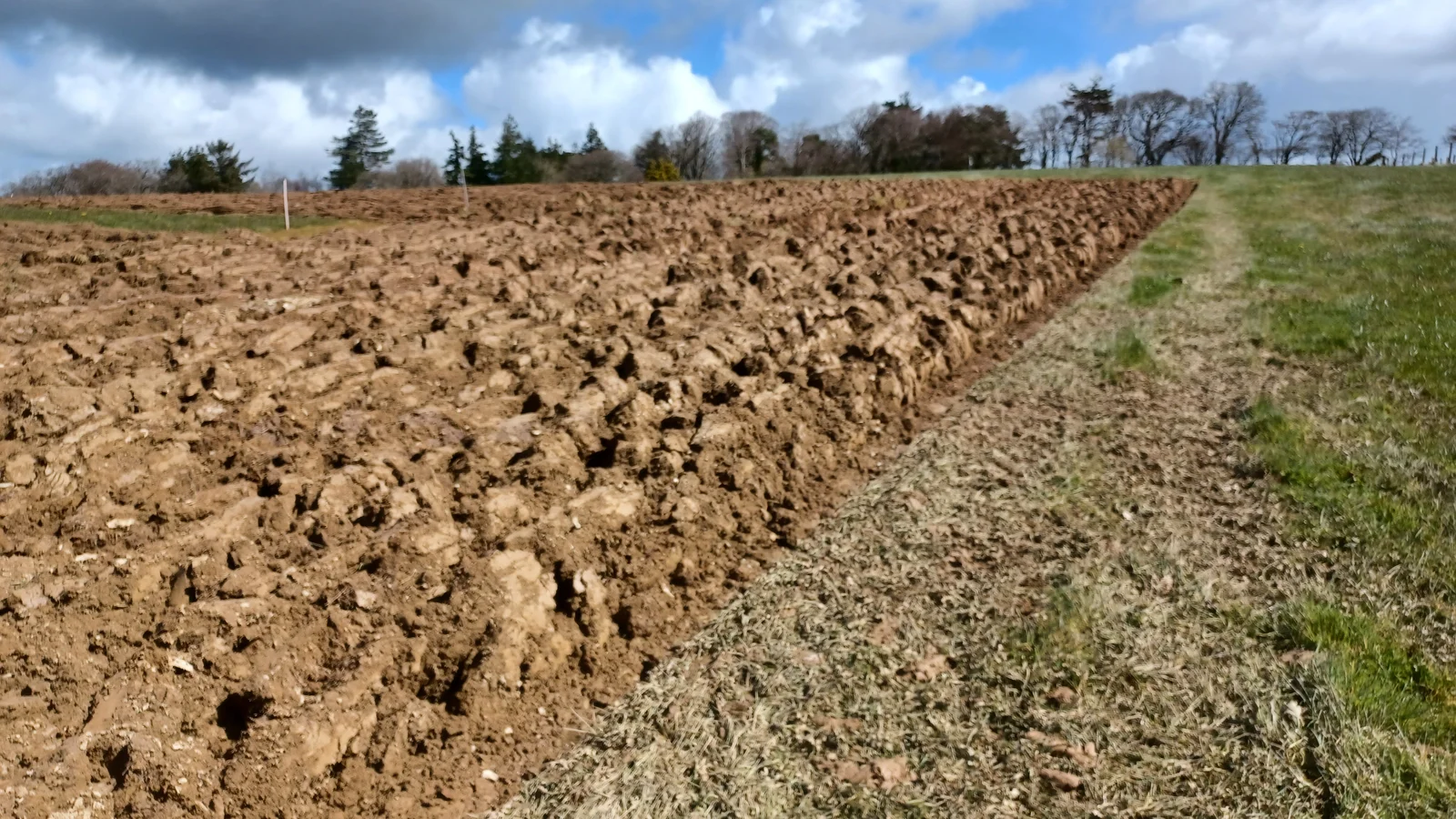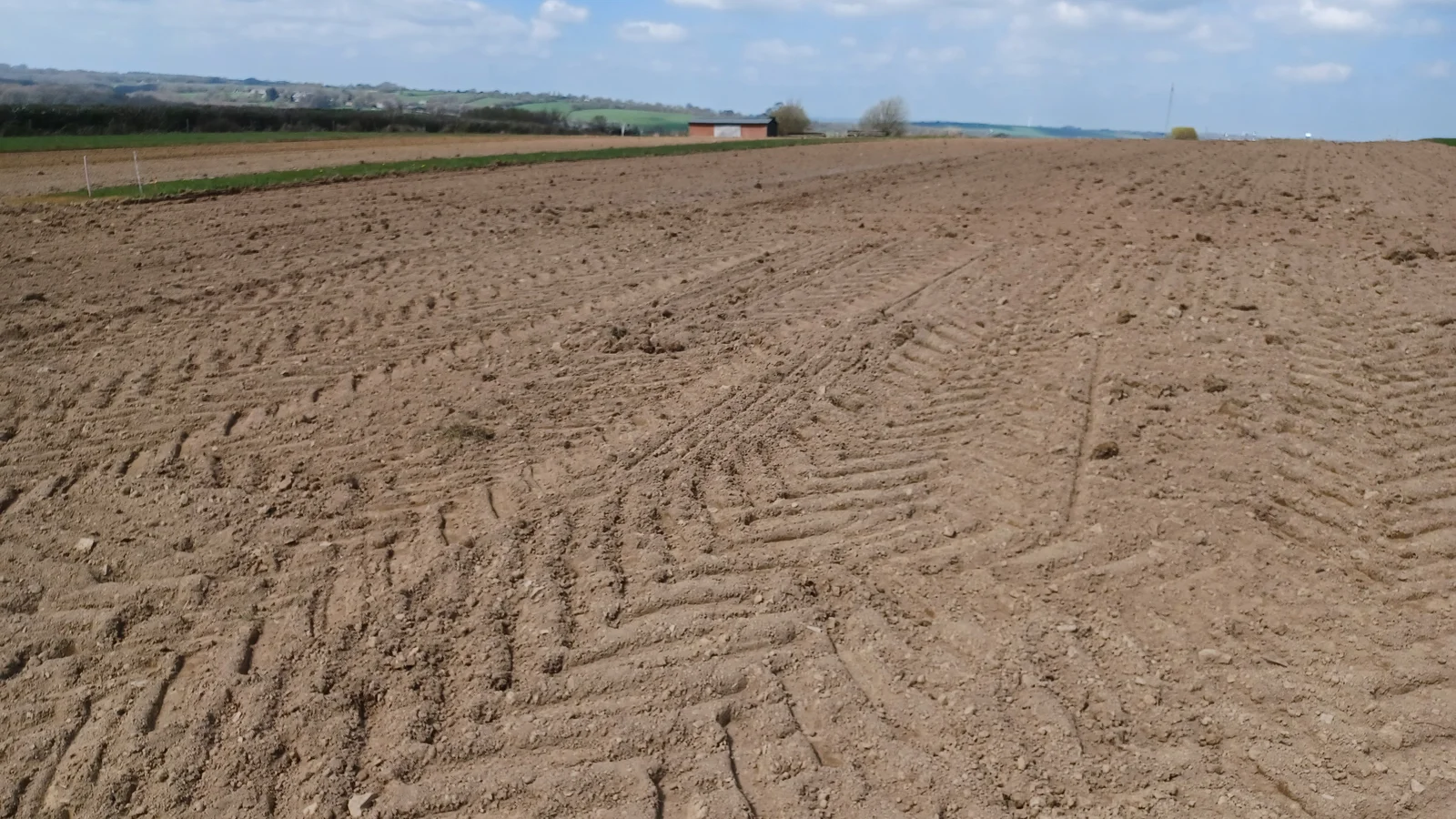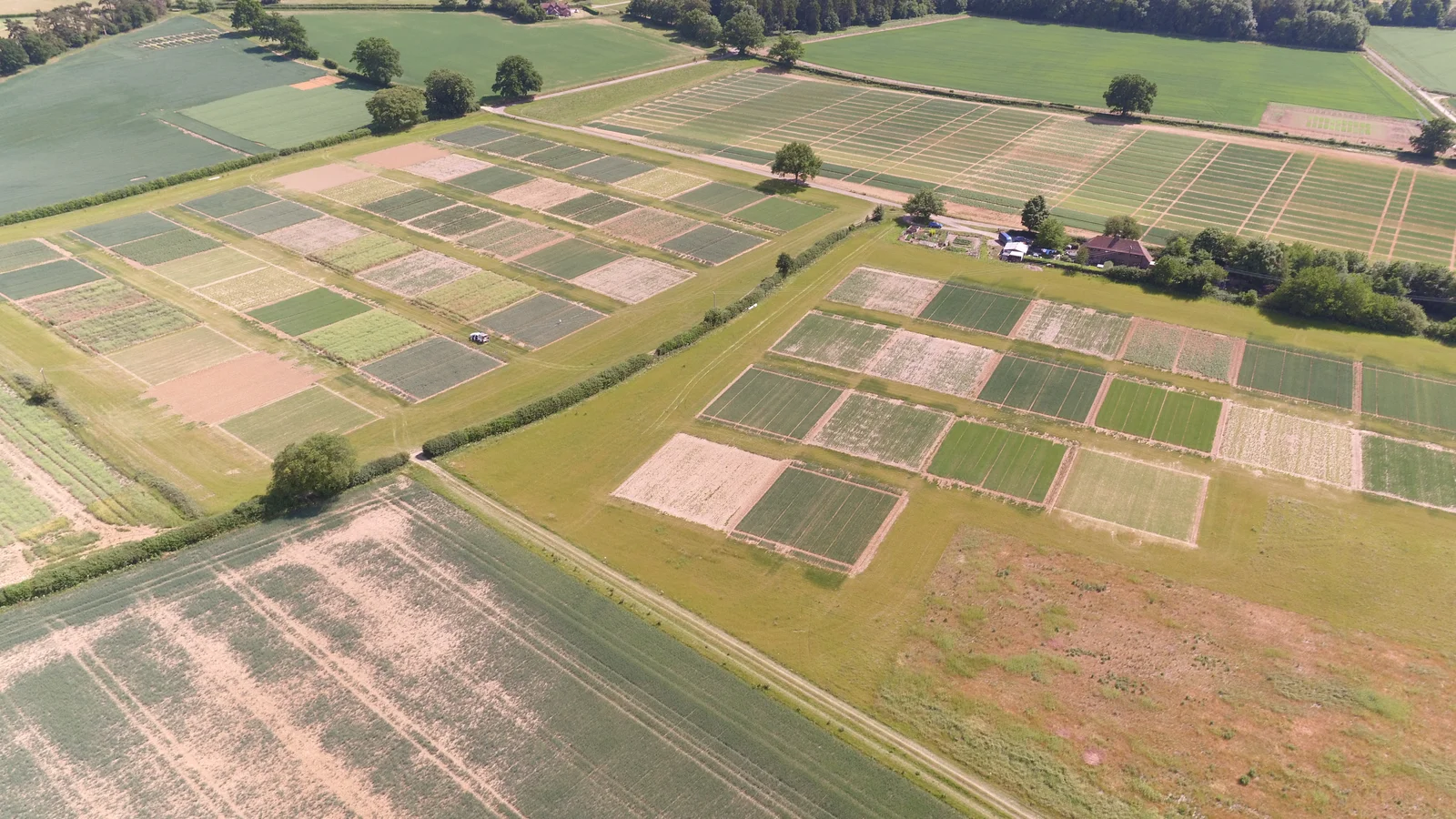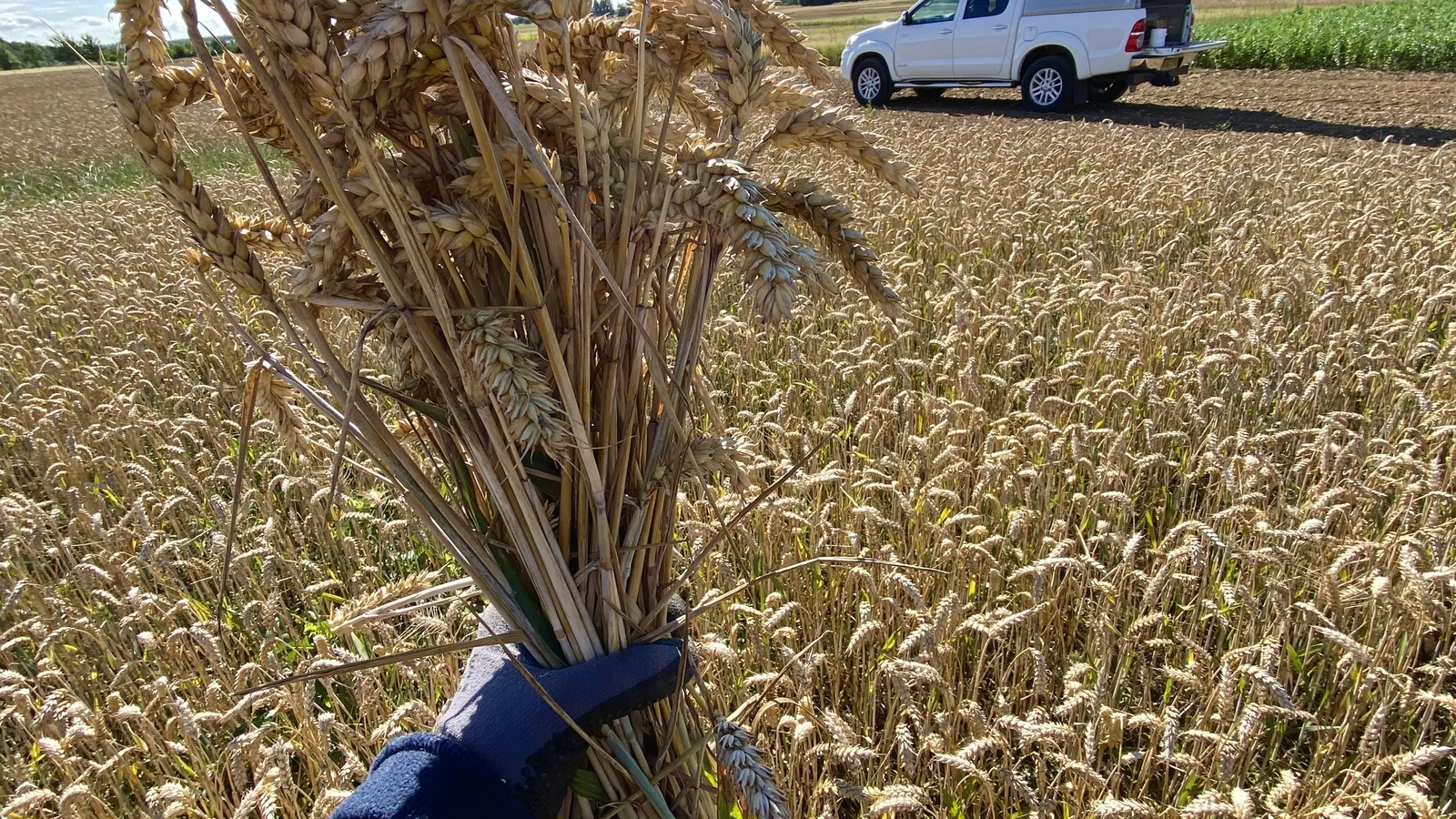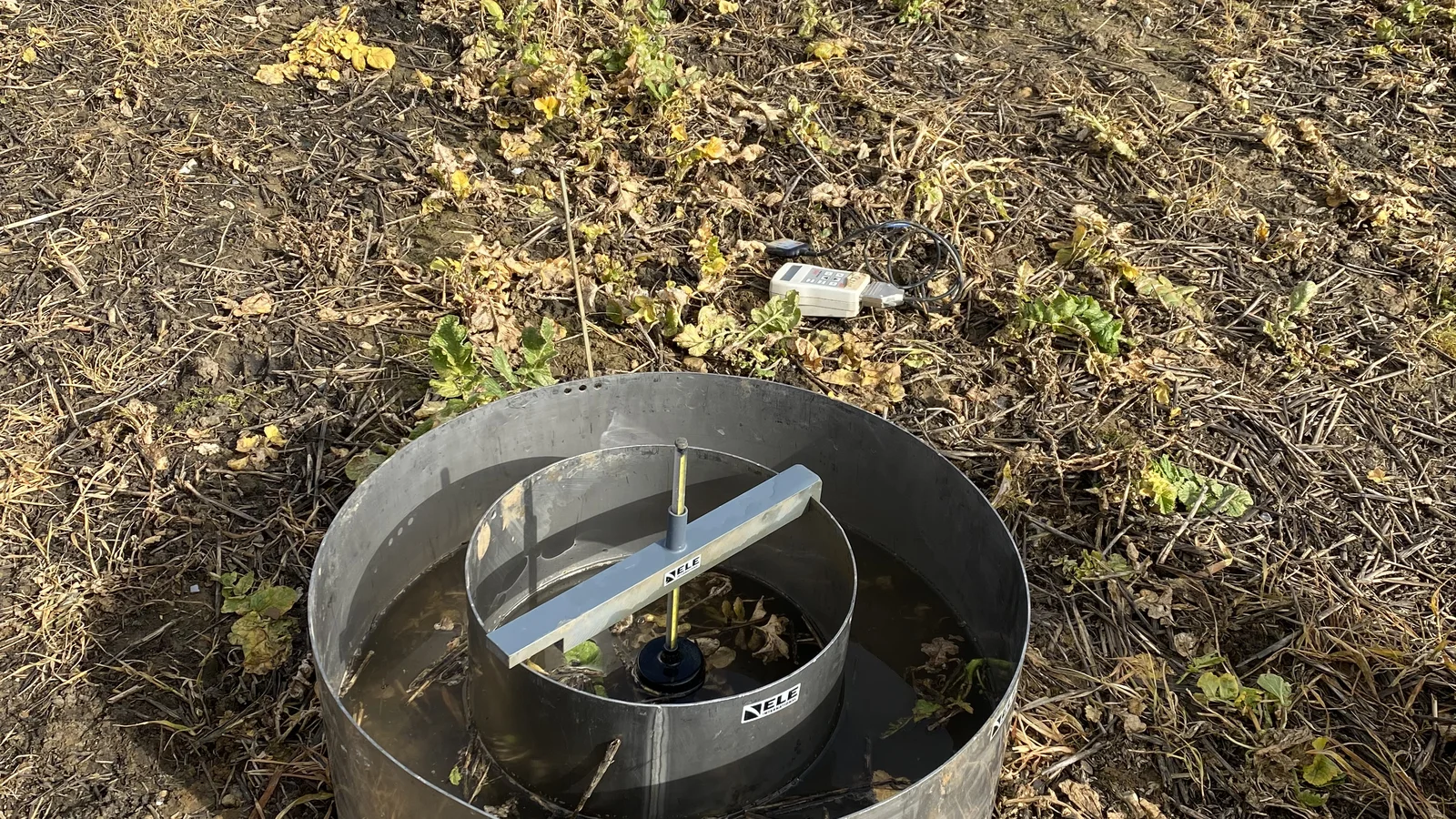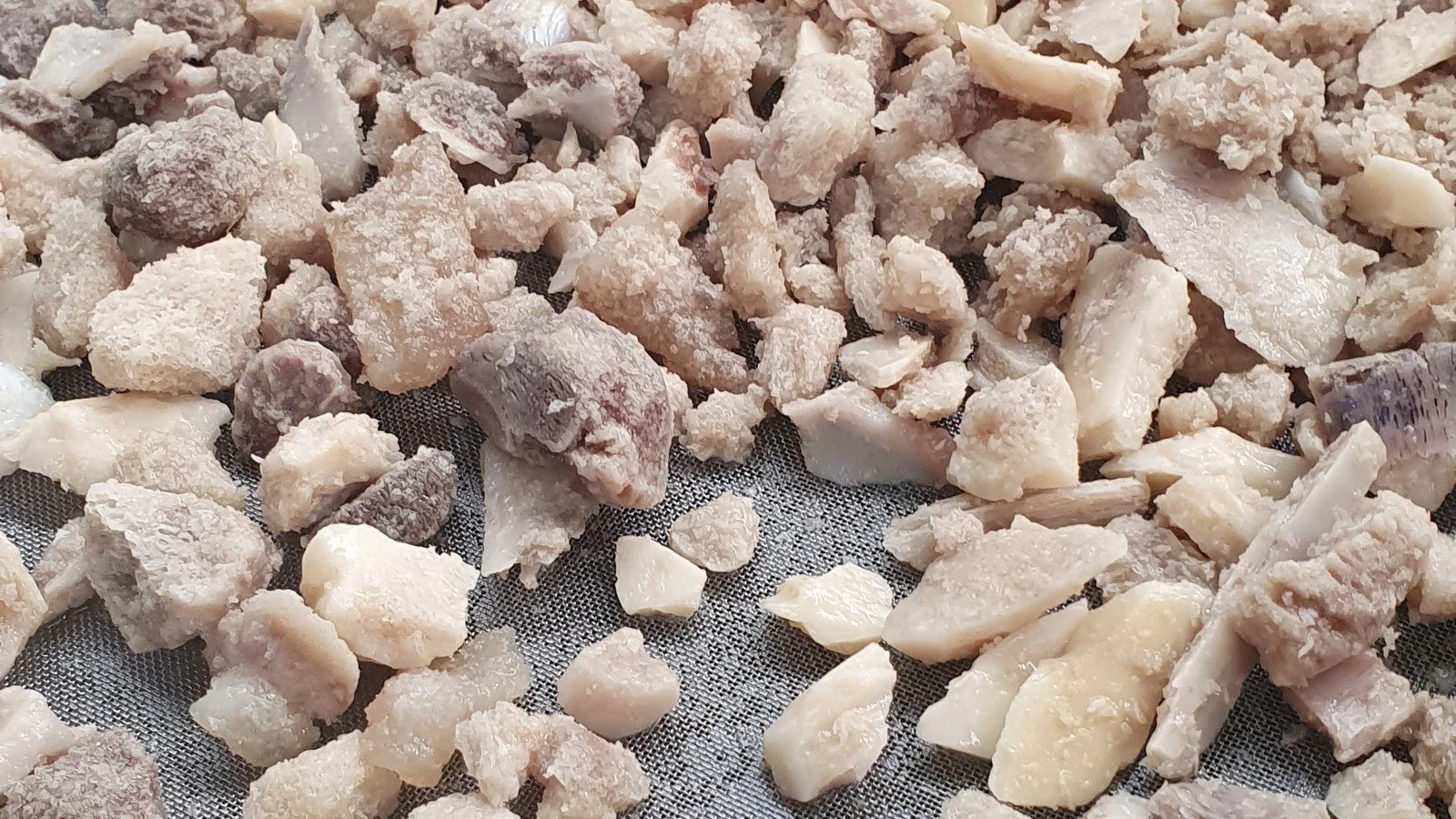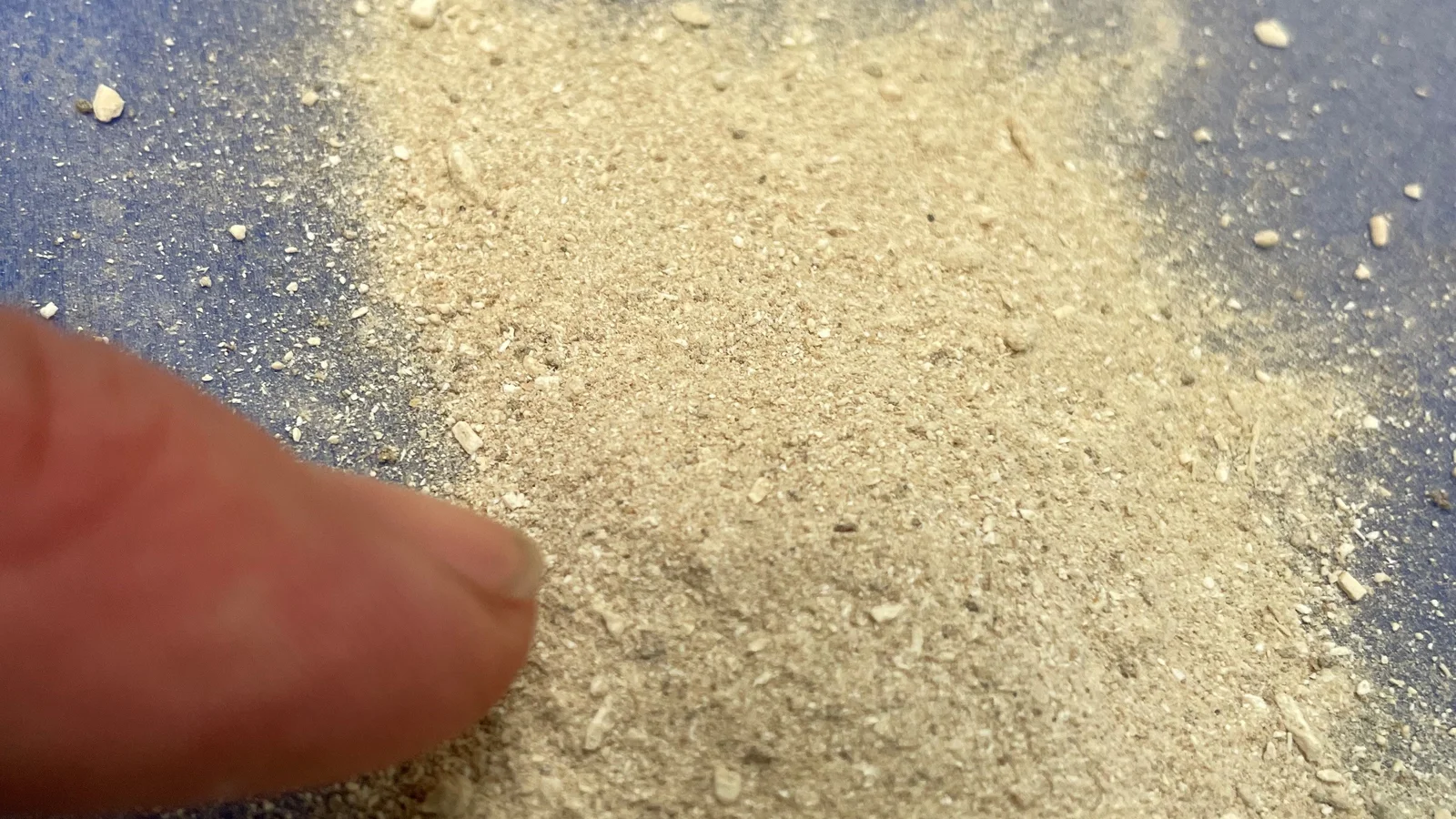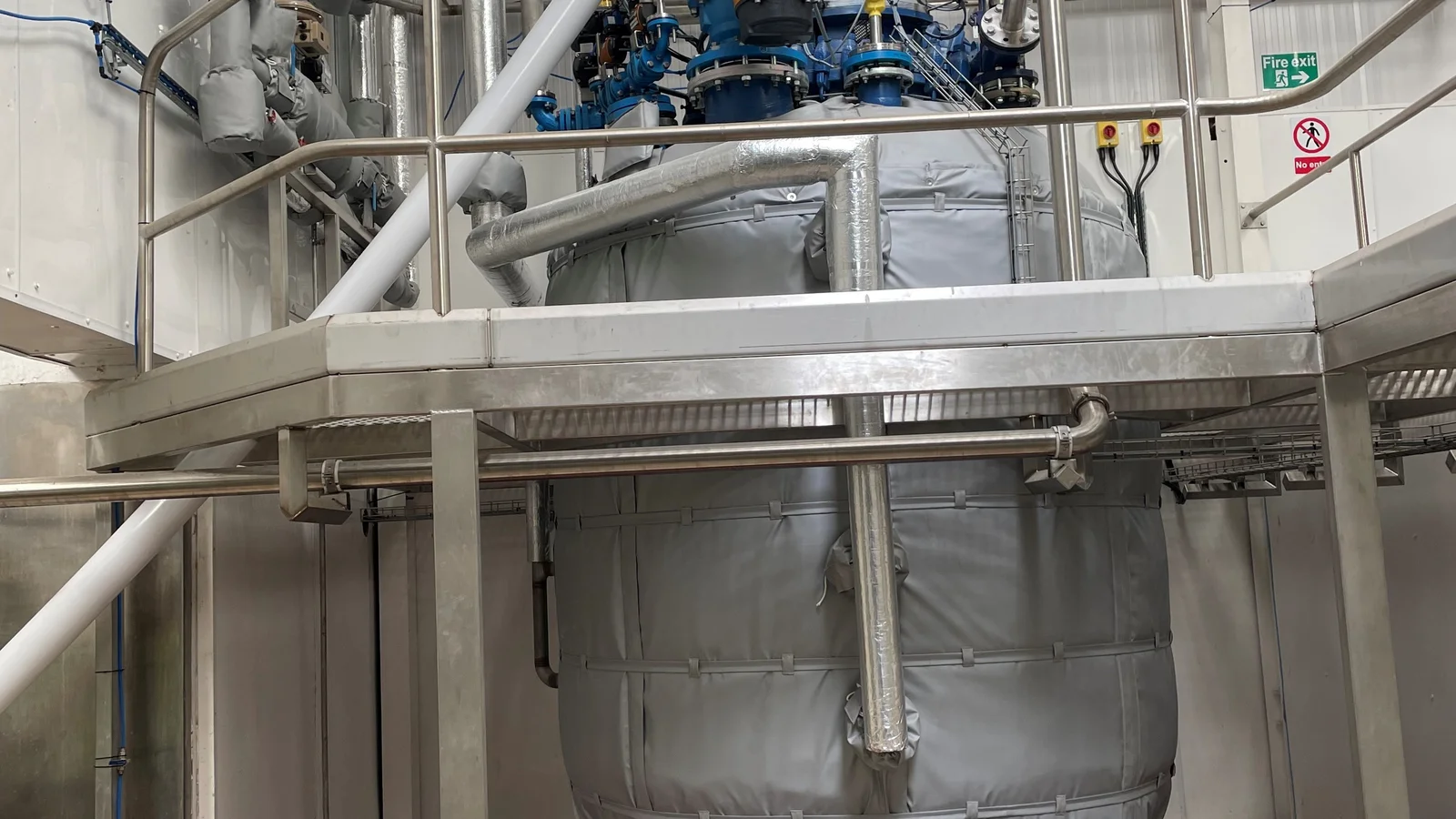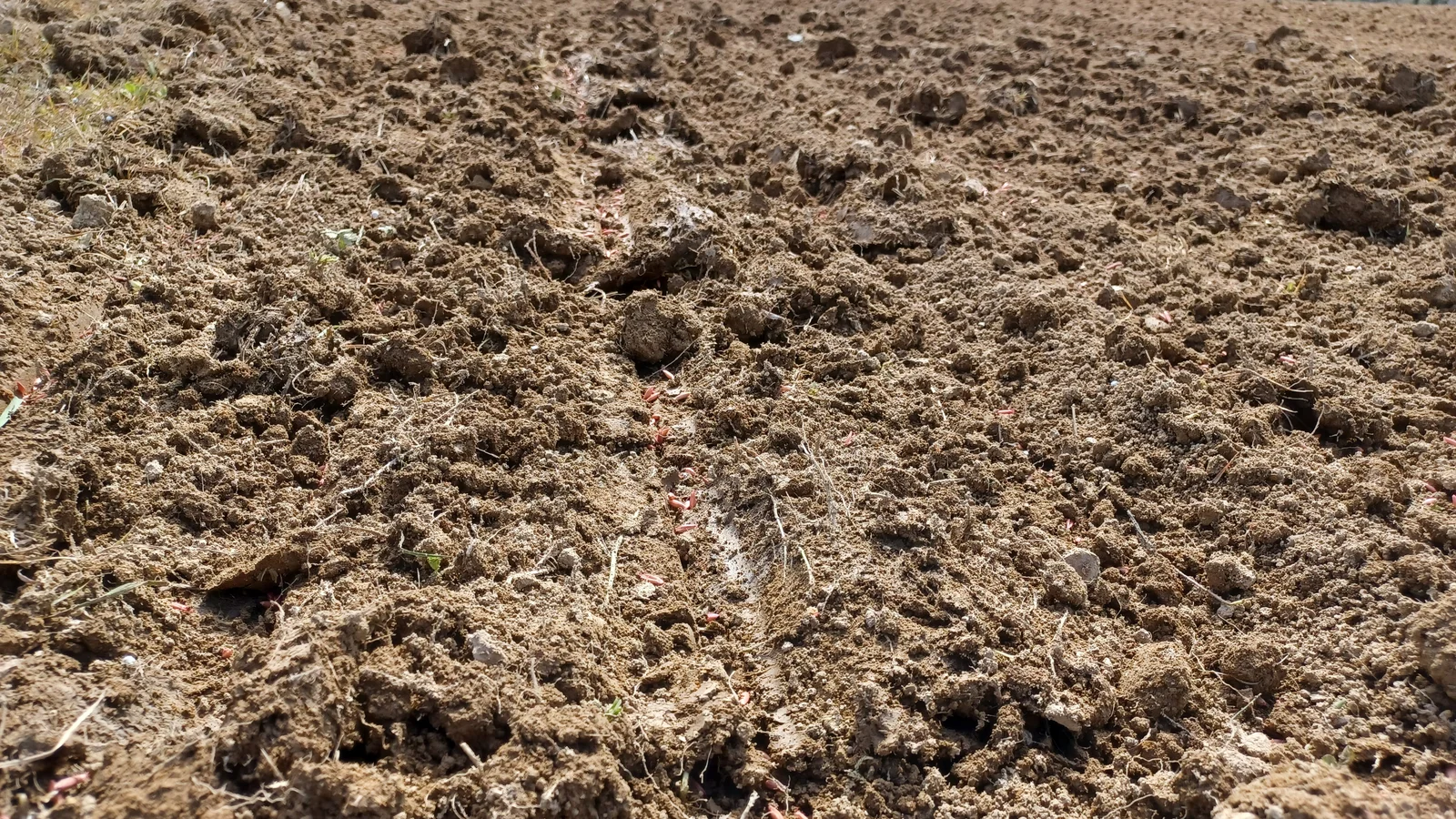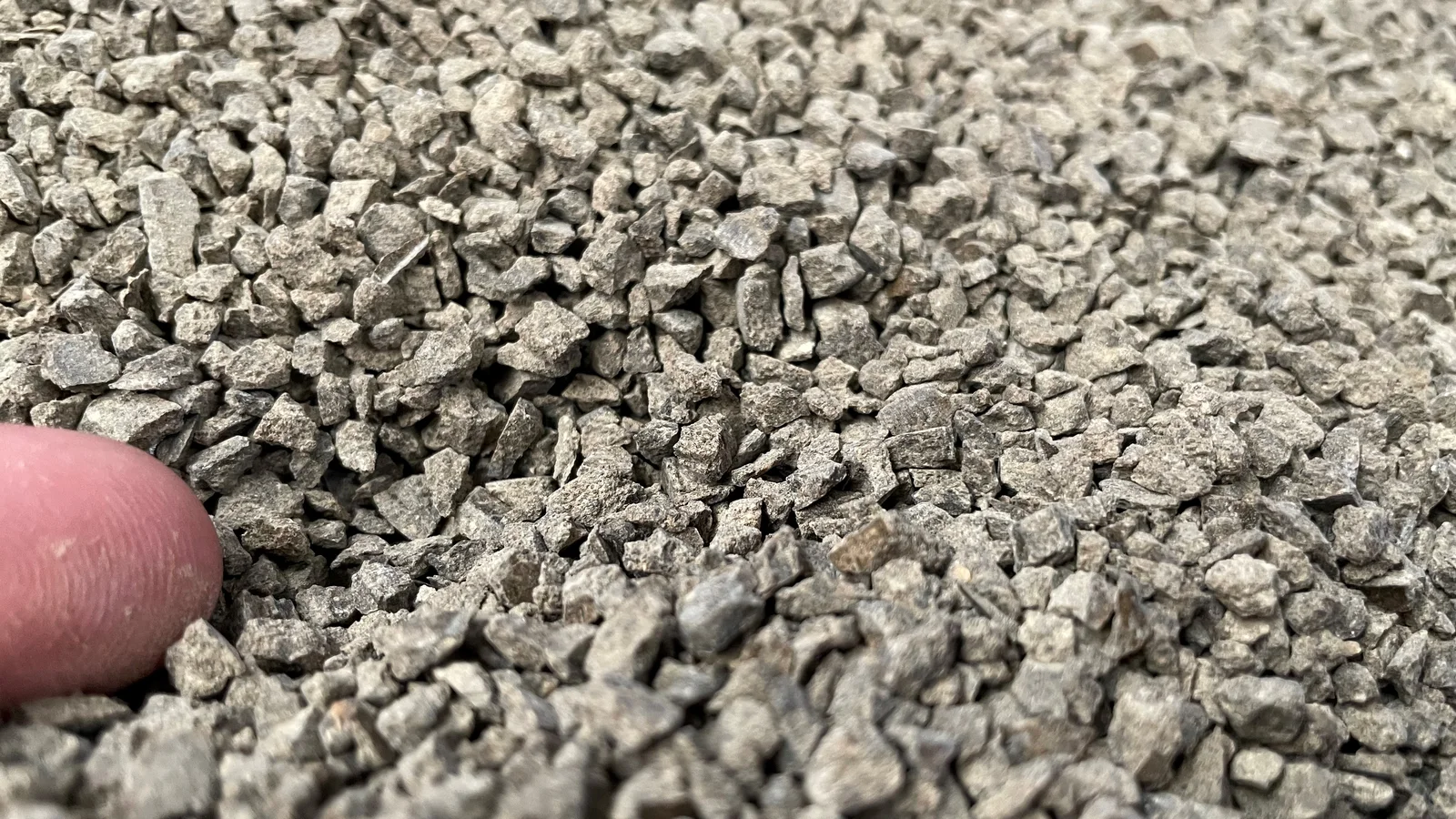United Kingdom
Description
The NBS sites in the United Kingdom will be: one at Rothamsted Research’s main research farm in Harpenden, Hertfordshire (north of London), one site in the east of England (Brooms Barn in Suffolk) and one at the North Wyke research farm in Okehampton, Devon (southwest England).
RRes will collect and interrogate data on productivity, nutrient use efficiency and environmental health from the LSRE (started in 2017 at Harpenden and 2018 in Suffolk) across three contrasting rotations that differ in the number and identity of crops grown; all phases of each rotation are grown every year.
Within the experiment there is also the option to investigate the impacts of organic vs. mineral fertilisers and ploughing vs. minimum tillage.
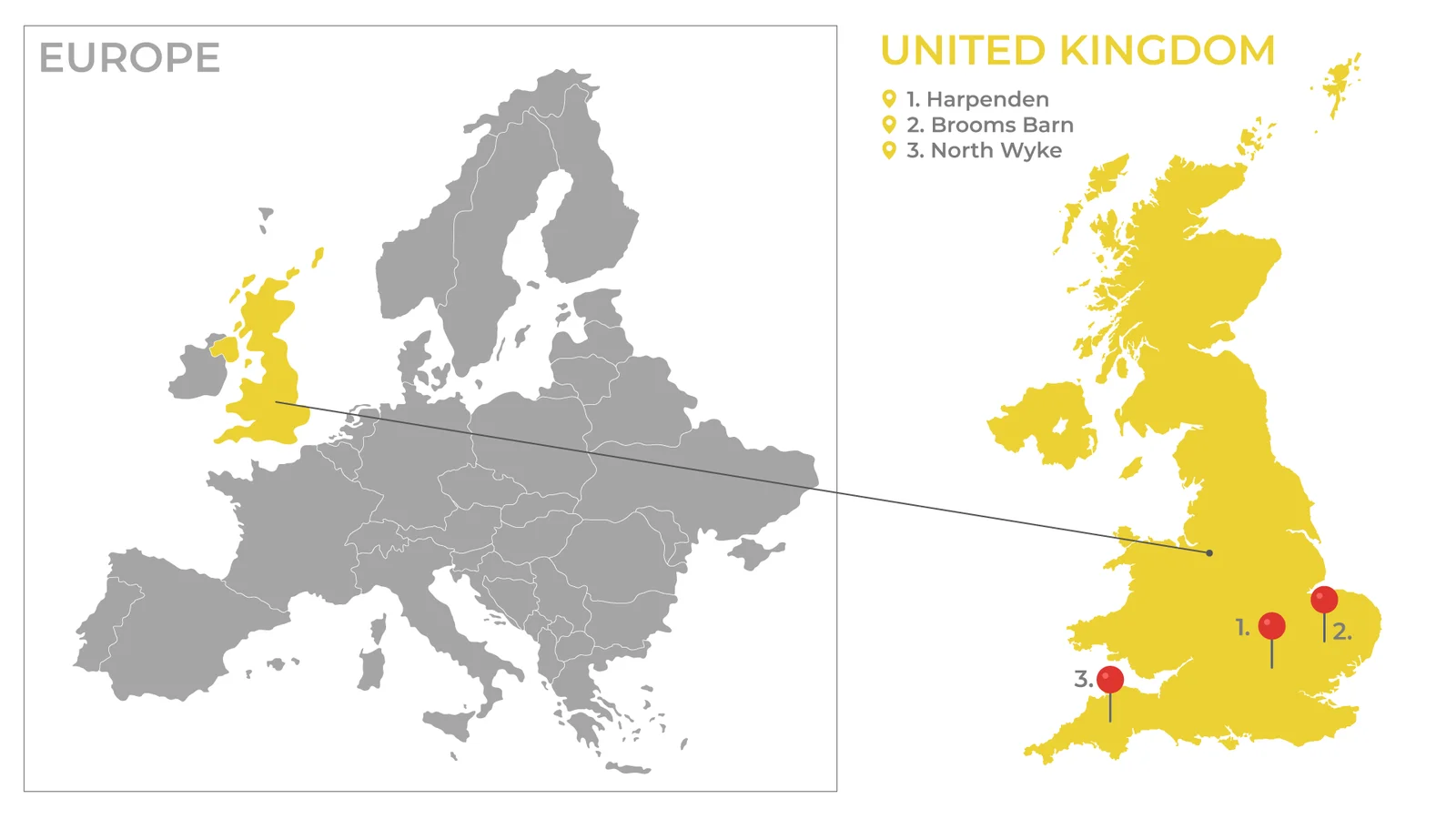
Challenges
Other experiments established over 170 years ago will provide data that informs us on the impacts of long-term organic amendments compared to mineral fertiliser applications. Key variables that will be measured are crop yield and quality, nutrient budgets, N and P availability in soils, soil organic carbon, soil structure and aggregate stability.
At Rothamsted’s North Wyke site in Devon, we will work with a company called Elemental Ltd that have developed a method for processing abattoir by-products to optimise food products and also to produce a phosphorus and carbon rich bio-fertiliser derived from animal bones, resulting in a fully circular recovery process with zero waste.
The efficacy of the fertiliser is being investigated using experimental and demonstration field plot trials comparing the efficiency of this fertiliser with conventional mineral fertilisers and traditional organic amendments (eg. farmyard manure).
The early farmer workshops will identify which aspects of the NBS demonstrations we are testing are of greatest interest and seek to establish a new network of farmers who will test them on their own farms.
trans4num NBS test site
Rothamsted is also home to the ‘Classical Long-Term Experiments’, the world’s longest-running agricultural field experiments. The main NBS to be tested in the UK involve diversifying arable rotations and using bio-based fertilisers, in particular:
- Crop rotations and use of cover crops and green manure (the Large-Scale Rotation Experiments (LSRE) at Harpenden and Suffolk);
- Farmyard manure (P) applications efficiency by (a) testing the mobile phone application “Farm Crap App” with farmers to calculate the quantities of nutrients they applied in manure, and (b) investigating the efficiency of farmyard manure application in combination with other mineral fertilisers to find the optimum amount;
- Recycled fertiliser made from abattoir by-products (primarily bones) as a source of phosphorus.
Multimedia products
Video: Crop rotations via the LSRE Video: Production of phosphorus fertiliser from abattoir waste Presentation: Production of phosphorus fertiliser from abattoir waste Factsheet: UK NBS site

